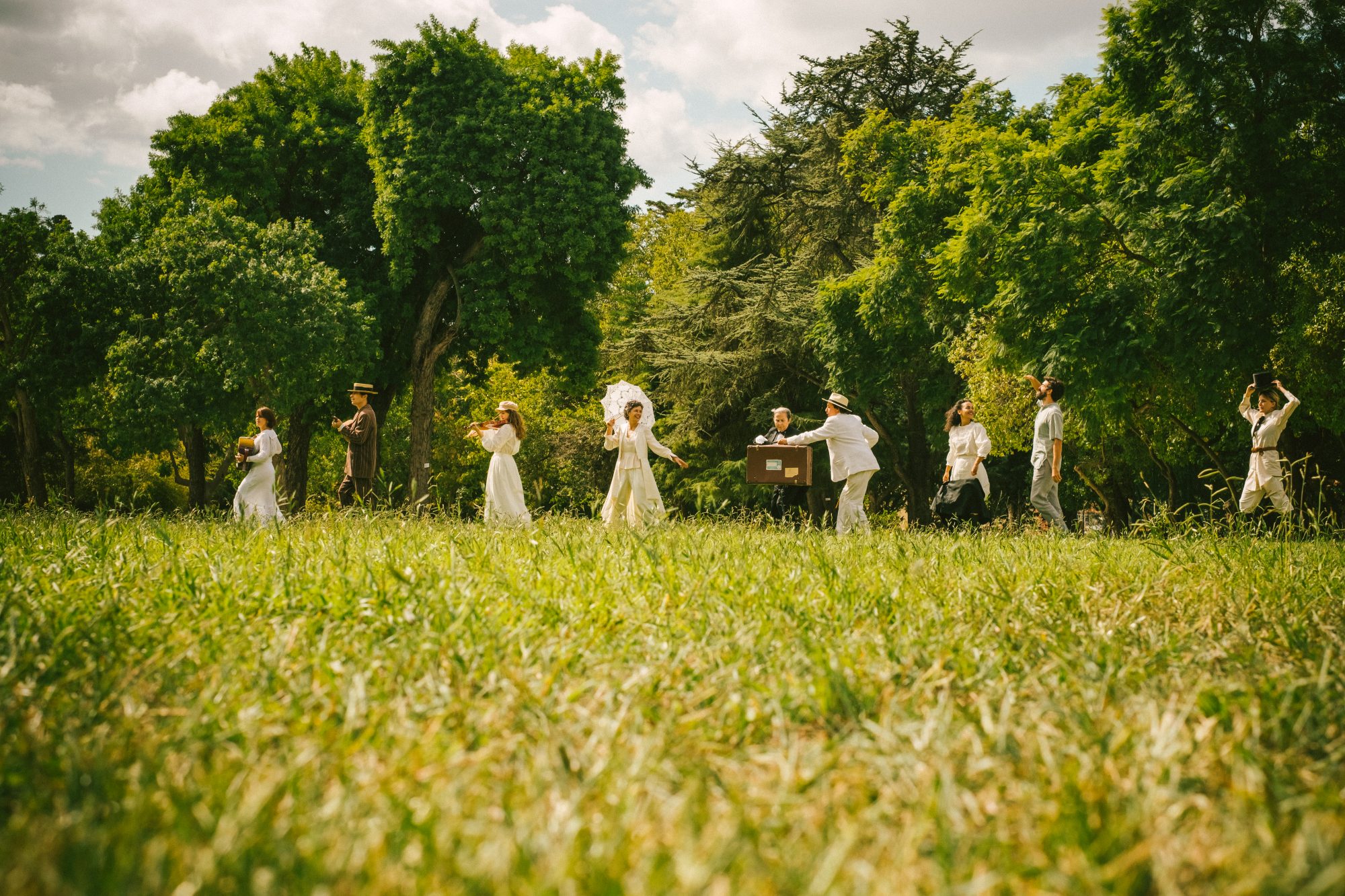The Cherry Orchard, the last play written by Chekhov, was staged for the first time, in 1904, by Stanislavski, surprising the author, who is said to have seen a tragedy when he thought he had written a comedy with some elements of farce. The play talks about the end of life, the end of a political cycle, the end of peace – endings that cause fear, that trigger various emergencies and escapes, that dominate the unconscious, that determine behaviours. For the director Sandra Faleiro, the play reflects a conscience that inhabits us too today, that of the imminent ending of a paradigm. “In some way, we also know that the economic models and ways of life that we have been keeping will have to be changed, that climate change will soon become irreversible, that migration due to drought and hunger will increase, and that the planet’s balance is under threat, aparently without any, necessarily global, solutions emerging that try to reverse this situation ”, she writes, in a reflection that makes her wonder about what place the theatre should occupy in this panorama.
O Cerejal
by Anton Chekhov
July 17th to 25th
Monday to Sunday, 8pm
Sala Luis Miguel Cintra
2h
€12 (with reductions)
M/12
july 24th
saturday, 8pm
Subtitled in English
july 23rd, 24th and 25th, 8pm
Description
Cast and Creative
Direction Sandra Faleiro Stage assistant Alice Medeiros Cast Cristina Carvalhal, Cucha Carvalheiro, Inês Pereira, Joana Campelo, João Vicente, Marco Mendonça, Paulo Pinto, Pedro Lacerda, Rodrigo Tomás, Sandra Faleiro, Sérgio Praia, actress to be defined Orchestra 4 musicians to be defined Light design Cristina Piedade Sound design Sérgio Delgado Scenography and Costumes Ângela Rocha Executive production Sofia Bernardo Coproduction Causas Comuns,Teatro Viriato and São Luiz Teatro Municipal /// Causas Comuns is a structure financed by Governo de Portugal – Ministério da Cultura / Direção Geral das Artes /// O Teatro São Luiz/EGEAC é parceiro no Projeto Europeu Inclusive Theater(s).










